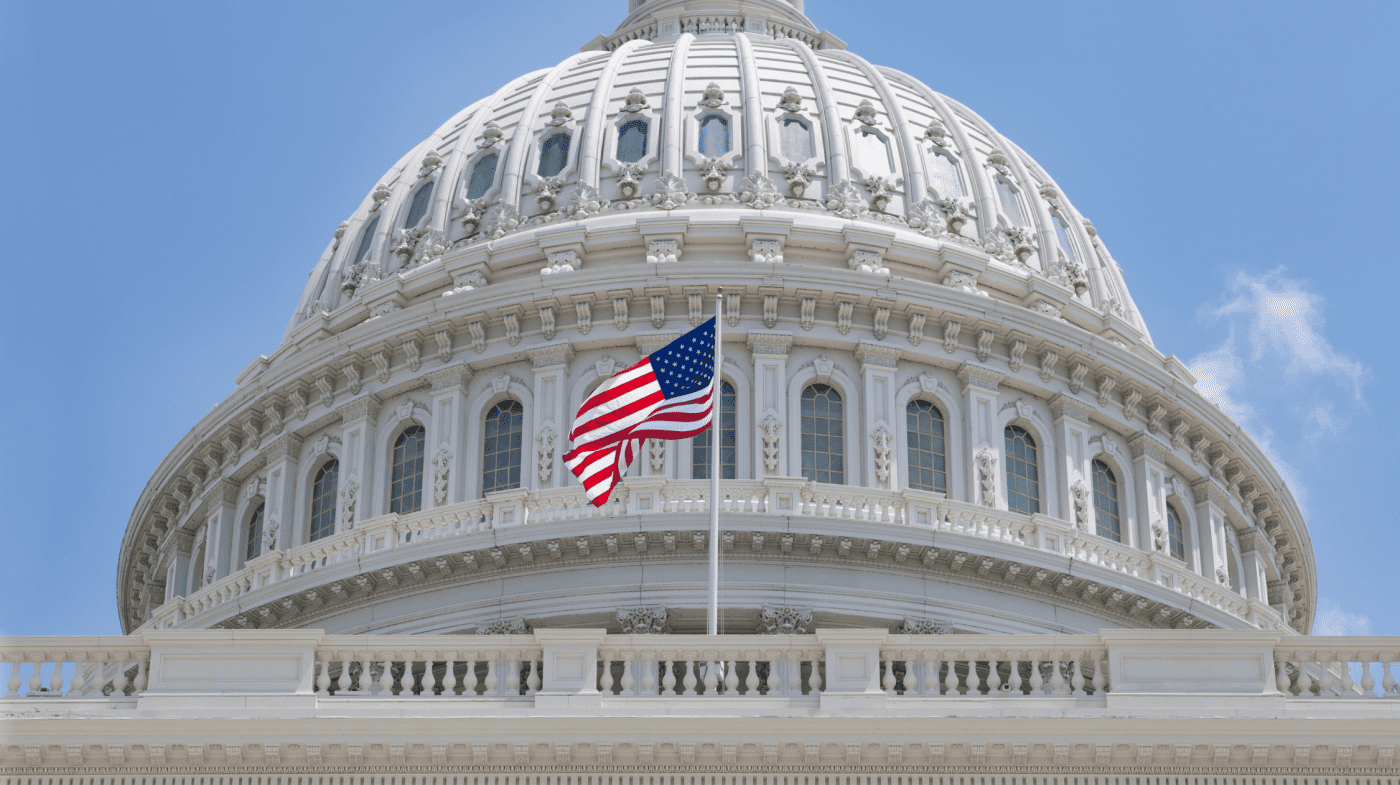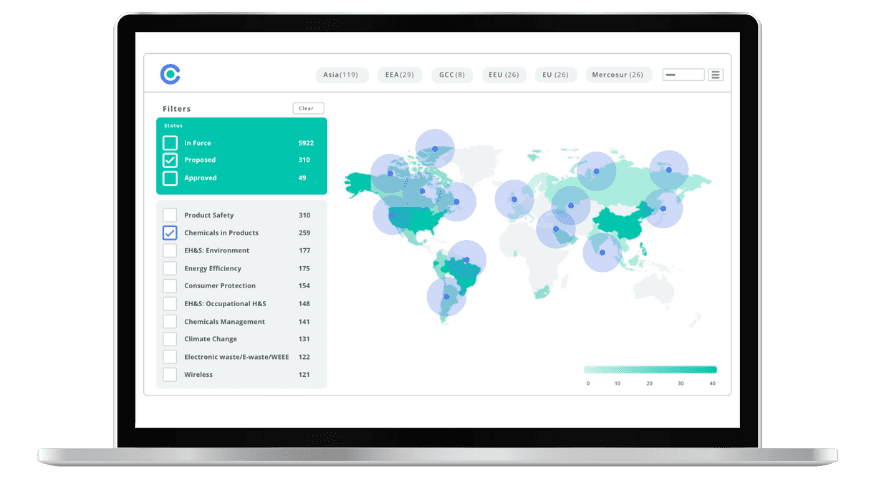
US Labor & Employment: 2025 Legislative Update – Part One

This blog was originally posted on 26th September, 2025. Further regulatory developments may have occurred after publication. To keep up-to-date with the latest compliance news, sign up to our newsletter.
AUTHORED BY CORINE LAURIJSEN, SENIOR REGULATORY COMPLIANCE SPECIALIST, COMPLIANCE & RISKS
Every year, hundreds of Labor & Employment related bills are proposed in the US at Federal and State level. And every year, only a small percentage makes it to the finish line.
This blog gives you an overview of new state laws that have been enacted in 2025. They have been organized under child labor, discrimination in employment, employer & employee rights, labor related definitions, and paid and unpaid leave.
Where Have Child Labor Laws Been Amended?
Nevada
Enacted Assembly Bill 215 will be effective on October 1, 2025. It reduces the maximum number of hours that a child under 16 can work in a week from 48 to 40 hours. It also introduces new restrictions on night work for high school students who are 16 or 17 years old and not emancipated, prohibiting them from working between 11 p.m. and 6 a.m. on any night immediately preceding a school day, with a few exceptions.
Utah
Enacted House Bill 19 will be effective on October 1, 2025. It strengthens Utah’s ability to prosecute and penalize employers who repeatedly or knowingly violate child labor laws, aiming to prevent the exploitation of minors in the workplace.
West Virginia
Enacted Senate Bill 427 has been in effect since July 11, 2025. It eliminates the work permit requirement for 14- and 15-year-olds and shifts the responsibility for age verification to employers. Employers are required to obtain and keep on file an “age certificate” for any child aged 14 or 15 they employ. This certificate, which is issued by the Commissioner of Labor, verifies the minor’s age and confirms parental consent for employment.
What Discrimination in Employment Related Changes Were Made?
Iowa
Enacted Senate File 418 went into effect on July 1, 2025, and made changes to how “sex” and “gender” are legally defined and applied in Iowa. The amendment removes “gender identity” from the Iowa Civil Rights Act, where it previously protected against discrimination in employment. It now defines “sex” as “the state of being either male or female as observed or clinically verified at birth, and specifies that “gender” is to be considered a synonym for “sex” and not for terms like “gender identity” or “gender expression.”
Oregon
Enacted Oregon House Bill 3187 became effective on September 27, 2025. The new law makes it an unlawful employment practice for employers, prospective employers, or employment agencies to request or require an applicant to disclose their age, date of birth, or dates of attendance or graduation from an educational institution. This prohibition applies before an initial interview is completed or, if no initial interview takes place, before a conditional offer of employment is made. The new law also repeals a previous provision in Oregon law that allowed apprenticeship programs to not select an apprentice who would be unable to complete the required training before the age of 70.
Were There Any Changes in Employer & Employee Rights?
Arkansas
Enacted House Bill 1643 entered into force on August 3, 2025, and amends Arkansas Code § 11-3-204(a)(1). It allows a current or former employer to disclose a substantiated allegation of sexual abuse or sexual harassment by a current or former employee or the resignation of a former employee during an investigation of an allegation of sexual abuse or sexual harassment to a prospective employer of the current or former employee.
Rhode Island
House Bill 5506, was signed into law on July 2, 2025, and took effect immediately. It is focused on protecting employee free speech rights in the workplace. The act prohibits employers from discharging, disciplining, or otherwise penalizing employees for refusing to attend employer-sponsored meetings that primarily communicate the employer’s opinions on “political matters” or “religious matters.” Exceptions include communications required by law and information necessary for employees to perform their job duties.
Minnesota
Enacted Senate File 17 is an omnibus bill concerning jobs, labor, and economic development. It was passed during a special legislative session and includes changes to Minnesota’s labor laws, taking effect on January 1, 2026.
The new law clarifies break requirements for employees. Employers must provide a 30-minute unpaid meal break for employees working six or more consecutive hours, and a 15-minute paid rest break for every four consecutive hours worked. If an employer does not allow an employee rest or meal breaks, the employer is liable to the employee for the time that should have been allowed at the employee’s regular rate of pay, plus an additional equal amount as liquidated damages.
The law also makes adjustments to the Earned Sick and Safe Time (ESST) program. Employers can now require employees to provide notice for unforeseeable leave as “reasonably required by the employer”, and documentation for ESST leave if an employee is absent for two consecutive scheduled workdays.
Where Were Labor Related Definitions Updated?
Arkansas
Enacted Senate Bill 598 entered into force on August 3, 2025, and amends, among other things, the determination of employment status and the definition of employee under the Labor and Industrial Relations Code.
An employer or agency charged with determining the employment status of an individual shall use the factors enumerated by the Internal Revenue Service 26 C.F.R. § 31.3121(d)-1, as it existed on January 1, 2025, in making its determination.
Employment status as an employee or independent contractor is determined by consideration of the factors required by the Empower Independent Contractors Act of 2019, §35 11-1-201 et seq.
Explore 2025 developments in US product compliance with our webinar US Product Compliance 2025: Key Federal & State Changes to Watch.
Which States Saw Changes in Paid and Unpaid Leave Provisions?
Illinois
Enacted Senate Bill 220 was signed into law on August 1, 2025, and took effect immediately. The new law mandates that employers with 51 or more employees provide up to 8 hours of paid leave per calendar month, up to a total of 40 hours per year, for eligible employees to participate in a military funeral honors detail. Employees must be paid their regular rate of pay for this leave, and are required to provide reasonable advance notice to their employer when possible.
Indiana
Enacted Senate Bill 409 entered into force on July 1, 2025. It prohibits an employer from taking an adverse employment action against an employee as a result of the employee’s absence from work to attend an attendance conference or a case conference committee meeting with respect to the employee’s child, except under certain circumstances. The employer is not required to pay an employee for travel or attendance time with respect to a conference or meeting.
Maine
Enacted Legislative Document 55 took effect on September 24, 2025. Under the new law, employees can now carry over their accrued and unused paid leave from the previous year without it reducing their ability to accrue a full 40 hours in the new year. This change allows an employee’s total paid leave balance to exceed the previous 40-hour limit, potentially reaching up to 80 hours (40 hours carried over plus a new 40-hour accrual).
Enacted Legislative Document 894 also took effect on September 24, 2025. The amending law makes several changes to the state paid Family and Medical Leave Program, and clarifies that employees can take intermittent leave in increments of no less than one workday. Smaller increments are possible if both the employee and employer agree, but the smallest possible increment is one hour.
Maryland
Enacted Senate Bill 785 amends Maryland’s Parental Leave Act to address an overlap with the federal Family and Medical Leave Act (FMLA). The new law will take effect on October 1, 2025, and changes the definition of “employer” under the Maryland Parental Leave Act. It now explicitly excludes any employer who is covered by the federal FMLA for the current calendar year, and ensures that the Maryland Parental Leave Act continues to apply to its intended audience: employers with 15 to 49 employees who are not covered by the federal FMLA.
Minnesota
Enacted Senate File 17 is an omnibus bill concerning jobs, labor, and economic development. It was passed during a special legislative session and includes changes to Minnesota’s labor laws, taking effect on January 1, 2026.
The new law clarifies break requirements for employees. Employers must provide a 30-minute unpaid meal break for employees working six or more consecutive hours, and a 15-minute paid rest break for every four consecutive hours worked. If an employer does not allow an employee rest or meal breaks, the employer is liable to the employee for the time that should have been allowed at the employee’s regular rate of pay, plus an additional equal amount as liquidated damages.
The law also makes adjustments to the Earned Sick and Safe Time (ESST) program. Employers can now require employees to provide notice for unforeseeable leave as “reasonably required by the employer”, and documentation for ESST leave if an employee is absent for two consecutive scheduled workdays.
Nebraska
Enacted Legislative Bill 415 will be effective on October 1, 2025, and amends and clarifies the Nebraska Healthy Families and Workplaces Act (HFWA), a paid sick leave law that was approved by voters in a ballot measure in November 2024.
The new law significantly narrows the scope of the HFWA. It exempts employers with fewer than 11 employees from the paid sick leave mandate. It also creates new exemptions for certain types of workers who were not initially excluded, including independent contractors, and individuals under the age of 16.
The accrual rate of one hour of paid sick time for every 30 hours worked is maintained. However, it establishes different annual caps based on employer size. Employers with 11 to 19 employees (defined as “small businesses”) can cap an employee’s accrual and use of paid sick time at 40 hours per year, and employers with 20 or more employees can cap accrual and use at 56 hours per year.
The new law also clarifies that new employees will not begin to accrue paid sick time until they have completed 80 hours of consecutive employment, and that employers are not required to pay out unused paid sick time upon an employee’s separation from employment.
Oregon
Enacted Senate Bill 1108 amends the state’s paid sick leave law to allow for an additional, specific use of accrued sick time: voluntary blood donation. This will become effective on January 1, 2026.
Vermont
Enacted House Bill 461, effective since July 1, 2025, expands Vermont’s unpaid Parental and Family Leave Act (PFLA). It applies to employers with 10 or more employees who work 30 or more hours per week.
The new law broadens the definition of “family member” to include a domestic partner, a child of a domestic partner, and other individuals in nontraditional family structures.
The legislation also introduces three new types of leave under the PFLA, which can be taken for up to 12 weeks within a 12-month period: bereavement leave, safe leave, and military qualified exigency leave.
Furthermore, the new law broadens the definition of parental leave to include an employee’s recovery from childbirth or a miscarriage. It also expands leave for caring for a foster child up to age 18 (previously it was up to age 16), and includes provisions for confidentiality related to safe leave.
Conclusion
This overview shows that there are quite a variety of changes among the labor & employment topics discussed that employers need to be aware of and, where applicable, comply with.
A second blog will be published soon with legislative updates regarding non-compete agreements, reasonable accommodations, wages, and workplace protections.
As US Congress and states like California and New York are still in session, you can expect a third update from us at the beginning of 2026, after closure of the 2025 legislative year.
Want to stay ahead of these US sustainability regulatory developments? Watch our expert webinar, ESG Regulatory Developments in the US, on demand now!
Stay Ahead Of Regulatory Changes in US Labor & Employment
Want to stay ahead of regulatory developments in US Labor & Employment?
Accelerate your ability to achieve, maintain & expand market access for all products in global markets with C2P – your key to unlocking market access, trusted by more than 300 of the world’s leading brands.
C2P is an enterprise SaaS platform providing everything you need in one place to achieve your business objectives by proving compliance in over 195 countries.
C2P is purpose-built to be tailored to your specific needs with comprehensive capabilities that enable enterprise-wide management of regulations, standards, requirements and evidence.
Add-on packages help accelerate market access through use-case-specific solutions, global regulatory content, a global team of subject matter experts and professional services.
- Accelerate time-to-market for products
- Reduce non-compliance risks that impact your ability to meet business goals and cause reputational damage
- Enable business continuity by digitizing your compliance process and building corporate memory
- Improve efficiency and enable your team to focus on business critical initiatives rather than manual tasks
- Save time with access to Compliance & Risks’ extensive Knowledge Partner network

Navigating Global Packaging Regulations: Expert Insights and Analysis
Join our expert webinar as we unpack some of the most frequently asked questions around packaging compliance in key international markets


